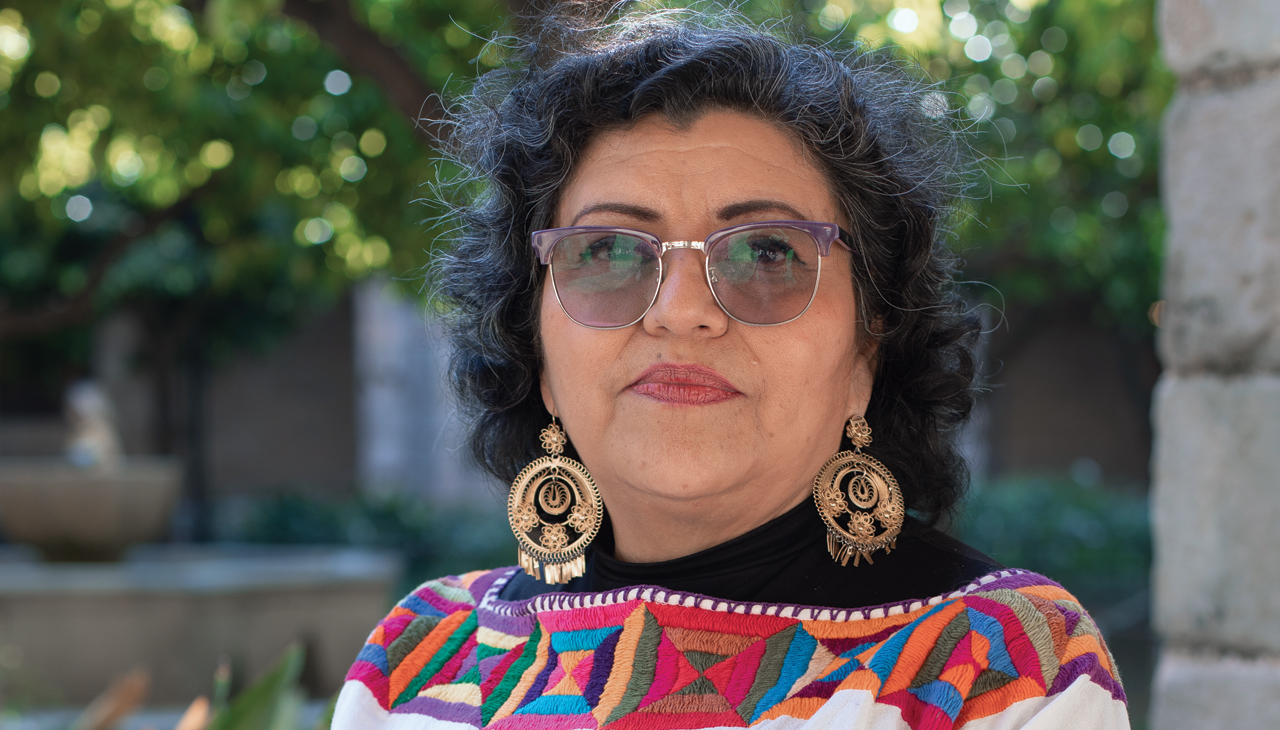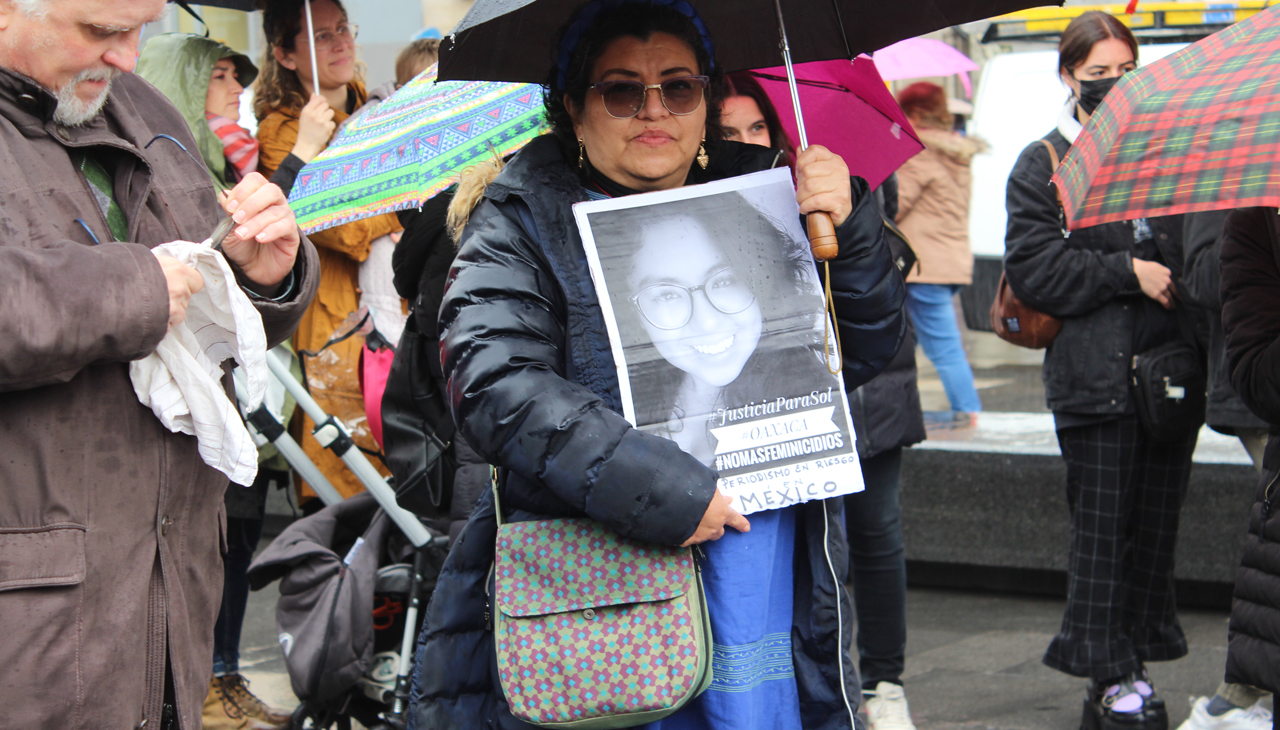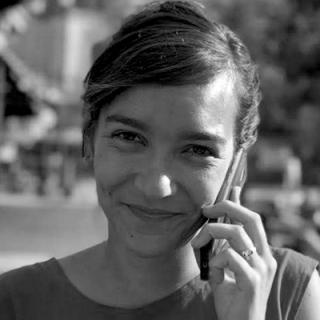
The Violence of State Censorship: Paulina Ríos’ Challenge For Truth
After suffering threats, she decided to participate in the program ‘Barcelona protects journalists from Mexico’
On Jan. 15, Paulina Ríos finally traveled to Barcelona. I met her two months later, and there was a pervasive sense of coldness at our first encounter. Paulina is a journalist in one of the most difficult countries to be one: Mexico. After suffering threats, she decided to participate in the program ‘Barcelona protects journalists from Mexico,’ which facilitates their stay in the city to give them a break and strengthen their professional and personal skills.
A difficult life
Paulina has been a journalist for more than 30 years. She worked in media in Oaxaca, her city, in the center of the country, and sometimes collaborated with the national press. But 15 years ago, she began to encounter the first limits to her coverage because, as she defines herself, she was “a little rebellious.”
Ríos faced censorship several times.
“Sometimes they didn’t publish me, they even took away a correspondent job in the United States for publishing a note against the Governor..." she said.
With the coldness that comes from a cruelty that becomes normal, she talked about the first threat she faced from a candidate running for Governor.
"I never wrote well about him. One day he called and told me to write well about him because he was going to be Governor,” she said.
“Do you know what that means? Yes, it is a threat. And what are you going to do alone with five children?" were his words
Ríos knew he would win the elections and become Governor, but she did not change her approach to work.
Another notorious situation occurred when a state official accused of human rights violations was appointed Ombudsman of Oaxaca. Ríos researched and collected information about his wasting money and failure to defend citizens, to put in an article. Her secretary sought her out to tell her that he wanted to buy the article, but she said no.
"I don't sell myself, don't give me money, I only say what happened," Ríos responded.
Her company changed her article, and it appeared edited on the cover, but still under her name. She put up with the disrespect for her children, but began to consider setting up on her own to continue practicing independent journalism.
Journalism first
"I am not going to write anything that is not the truth," she said. "I am also not going to look the other way and not report something I know."

She does have some victories under her belt. The official lasted only a week as Ombudsman because Ríos managed to demonstrate his corruption and apathy at the office. Her journalism has always been at the service of the individuals and victims of injustice.
After so many threats and attempts to censor her, Ríos grew in a group of journalist friends as loyal to the profession as she is. One of them, Pedro Marías, was kidnapped for a day in 2008, threatened, stripped of his vehicle and thrown in a garbage dump. He had to leave the country.
Encouraged, Marías — despite being away — him and other colleagues decided to create a digital newspaper. For months, they were poolings parts of their salaries to start it, and this is how they founded Página 3, in 2011.
"We have worked very hard, but in this newspaper we are free, and we write about what we want," Ríos said emphatically.
Starting up and maintaining such a platform has been very, very difficult. The attacks moved on to the digital world, and became so unbearable, that Ríos decided to leave Mexico to be able to return with more enthusiasm and energy.
Online threats and attacks
“Going out and seeing everything from outside is a relief," Ríos said at first.
I don't sell myself, don't give me money, I only tell what happened
The journalist needed to calm down and see things from another perspective after receiving so many threats and attacks. Página 3 has also been hacked many times.
"We have changed servers six or seven times, because those who do not want us to report them take it down,” she said. “We cannot upload news."
During elections in Oaxaca, where she lived and worked, the attacks increased. The last one was the biggest and longest: from November 2021 to January 2022. They never know who is really behind the attacks because they use addresses from other countries.
An economic and personal crisis
To defend Página 3, Ríos’ team has had to increase security on the website.
"And that also costs money," she said.

Paulina takes refuge in Barcelona to be able to continue practicing journalism / Stefano Nicoli
For some time, she had to quit her job as a journalist and work with a federal agency to make a living. However, she kept taking care of Página 3 in her spare time.
Página 3 has faced a lack of business for being critical of the government. Establishing alliances has been difficult, as has been paying reporters who make the journalism. In a country where the media is at the service of the advertisers, financing Página 3 has been an issue. They have also lost many clients for publishing notes against businessmen who advertised on the website.
RELATED CONTENT
We have worked very hard, but in this newspaper we are free, and we write about what we want.
“We survived, but my house doesn't even have a front door because I haven't had enough to put it in,” she said. “The floor is cement and I had to sell my car."
However, those knocks were balanced out by the requests from journalists who worked at other media companies to be published in Página 3. Specifically, they wanted to see their articles that were censored at their outlets.
An unsustainable situation
On an emotional level, there has been a lot of wear and tear worrying about the collaborating reporters and their security carrying out the coverage.
“If one takes time to communicate, the alarm sounds, and they ask you where you are," she explained over a coffee on a quiet street in Barcelona.
So much stress, added to the instability, caused her to faint. Her children had to take her to the hospital. Doctors told her to rest and sleep to recover. Ríos, before giving up journalism, decided to leave her federal job to return to her profession:
"If I die, let it be doing what I like," she said.
Her reporting was at the cost of her health. A year ago, the brunt of running an independent news site overwhelmed her. The pandemic caused her even more problems and she fell into depression to the point that she did not want to live. No money, no strength, no joy.
"You are very important, and your project has to continue," a journalist friend told her.
Thanks to her enormous work, Ríos has a network of friends who value her efforts and are there to help her. Through them, she got in touch with ‘Barcelona protects journalists from Mexico.’
Página 3 has been a home and a refuge for many journalists who needed to know that they were not alone or crazy. Ríos is the soul of the project. A month after the interview, we met again in Barcelona for a photo session, and her situation had completely changed.
As you can see in the photos that come with this profile, Ríos shines and expresses the confidence that comes from having a mission in this life: to tell the truth, especially when it results in justice. When I ask about her plans upon her return, she has no doubt she will continue with Página 3.
“We will continue working because we want to,” was her message.
If one day Ríos quits journalism, it will not be for lack of energy. Getting here has already been very difficult. If you want to help Página 3 continue reporting, the account number of the Association of Journalists for a Free Word is 012610001122746551 at the BBVA bank in Mexico.
Meanwhile, she still has dreams of returning to the landscapes of Oaxaca.











LEAVE A COMMENT: